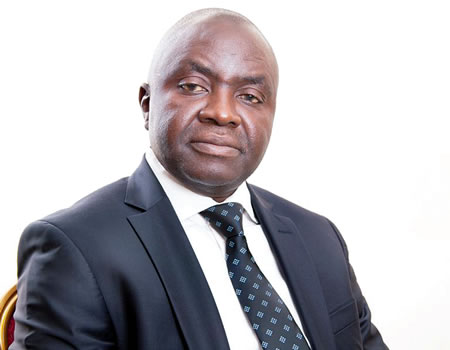The Manufacturers Association of Nigeria (MAN) and the Lagos Chamber of Commerce and Industry (LCCI) have expressed concern over President Muhammadu Buhari’s request for the Senate approval of $29.96 billion economic stimulus infrastructure external loan.
According to the DG of MAN, Mr Segun Kadiri, in a statement made available to the Tribune Online at the weekend, “The 39 emergency projects in the Power, Agriculture, Transport & Mining sectors of the Nigerian economy alluded to by Mr President should redress some of our infrastructure and sectoral performance/linkage deficits. To this extent, the projects are needful and their successful completion would boost the productive capacity of the Nigerian economy.
“However, the rising debt profile of Nigeria continues to be a cause for concern, especially the capacity of Government to effectively service it and at the same time, meet the bursting needs and aspiration of the citizenry going forward. Already, our budget projections for 2020 anticipates a debt service sum of ₦2.45trillion, an amount higher than the ₦2.14 trillion earmarked for capital expenditure.
“Also, our total external debt stands at $27.16 billion, while Domestic debt has climbed to $56.72 billion. Nigeria’s debt stock increased by 3.11% from $81.27 billion recorded in the first quarter of 2019 to $83.88 billion (N25.70 trillion) at the end of June 2019. This is almost 13% increase year-on-year from the $73.21 billion at the end of June 2018. And even though our debt-to-Gross Domestic Product (GDP) ratio, which currently stands at 28 per cent, is still below the average in Africa, our revenue-to-GDP ratio remains low.
“A possible consolation remains that this loan is not programmed to fund consumption, but likely to improve our productivity, depending on its strategic allocation, the governance of project execution and monitoring and management of its foreseen impact on subsisting government inflows and financial commitments.”
ALSO READ: Ministries of Foreign Affairs, Justice get N5.6bn in 2019 budget for zonal intervention projects
Also speaking on the loan request, the LCCI stated that the nation’s growing debt is a cause for concern as the debt profile grew from N12.6 trillion in 2015 to N25.7 trillion in 2019 second quarter, an increase of 104%.
In a statement signed by the LCCI DG, Muda Yusuf, a copy which was made available to the Tribune Online at the weekend, “There is also the bigger worry about the capacity to service the debt. For instance, the debt service provision in the 2019 budget was a whooping N2 trillion; whereas the total capital budget was N2.9 trillion; this implies that the debt service commitment was 70% of capital budget allocation. Debt to revenue ratio was about 30%, which is also on the high side.
“In the 2020 budget, debt service commitment and recurrent spending are beginning to crowd out capital expenditure. This trajectory is not consistent with our national aspiration to build infrastructure and a competitive economy. Debt service of N2.45 trillion is more than the capital budget of N2.14 trillion in 2020 budget. That is 114% of the capital budget. It is against this background that the new request for $30 billion is troubling. Care should be taken to avoid a full-blown debt crisis.
“The opportunity cost of high debt service commitment for the economy and citizens is very high. There is also the exchange rate risk inherent in the exposure to mounting foreign debt which we need to worry about. As the currency depreciates, the burden of servicing foreign debt would intensify. This is a major problem with increasing the stock of foreign debt.
“This underlines the need for appropriate policy choices to attract domestic and foreign private-sector capital for infrastructure financing. The government needs to look beyond tax credit in its quest for more complementary funding sources for infrastructure. We should be looking more in the direction of equity financing. But for this to happen the policy and regulatory environment must be right.
“It is also critical to review the spending structure of government and the cost of governance. The ballooning recurrent expenditure, in the face of declining revenue, is a cause for concern.
“There is a need to clarify the place of the new loan request in relation to the 2020 budget and the 2020 -2022 medium-term expenditure framework. Additionally, borrowing should strictly be in line with section 41 of the Fiscal Responsibility Act which stipulates that ‘Government at all tiers shall only borrow for capital expenditure and human development, provided that, such borrowing shall be on concessional terms with low-interest rate and with a reasonable long amortization period.”






